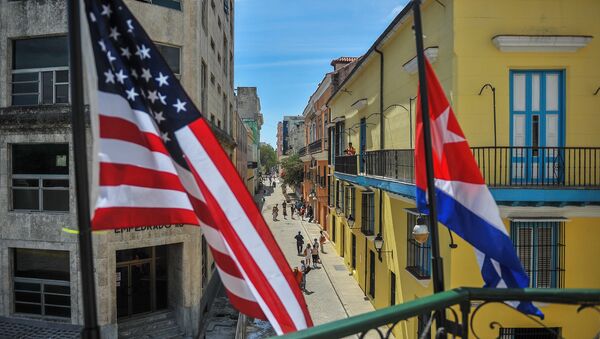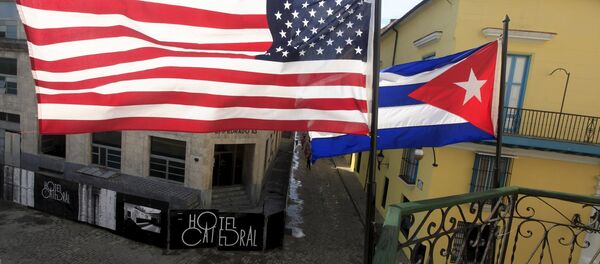And while the new policy may in fact roll back some measures previously implemented by former President Barack Obama, by tightening restrictions on trade and travel or even banning US companies from doing business with enterprises linked to Cuban military, the exact details of this new strategy are not yet clear.
However, Dr. Mauro Guillen, Anthony L. Davis Director of the Lauder Institute at the University of Pennsylvania, told Sputnik Radio that Cuba and the US are "very close to one another and have a history of very close relationships", and that both sides are to blame for the crisis in relations which occurred following the Cuban Revolution.
"I think in the long term there’s no other solution for the two countries to be on good terms because they are neighbors. And I think that both the United States and Cuba have everything to gain from stronger and more open relationship," he said, adding that a lot depends on who will succeed Raul Castro as Cuban president.
According to Guillen, while the US political establishment in general wants to see Cuba "making progress on human rights," President Trump may also seek to fulfill his campaign promise to hold Havana "more accountable" in that regard.
He also pointed out that the US business circles and the Cuban-American community appear to be divided on this issue.
"Certain businesses like, for example, travel and healthcare, and pharmaceutical, are very much interested in lifting of the embargo and not just the continuation of Obama’s policies. But at the same time there’s a very deeply divided Cuban-American community in Miami: the younger generation wants an opening to Cuba whereas the older generation, as many of them came from the island, wants to pursue a more hardline approach. So there are many division, and there are also divisions within the White House itself: some of the advisors seem to be more hawkish, more inclined to pursue tougher policies on Cuba, and others want to build on the legacy of President Obama," he explained.
Dr Guillen also remarked that as the US Congress did not yet lift "any parts of the embargo" imposed against Cuba, it would be relatively easy for the White House to reverse "some of the executive orders by the Obama administration."
"I think the US wants to pursue some kind of ‘carrot and stick’ policy — that is to say, not to make too many concessions to Cuba and try to make them go down the path that the new administration wants Cuba to go down, but at the same time open up opportunities for US businesses because many of them would like to have access to the Cuban market," he said.



